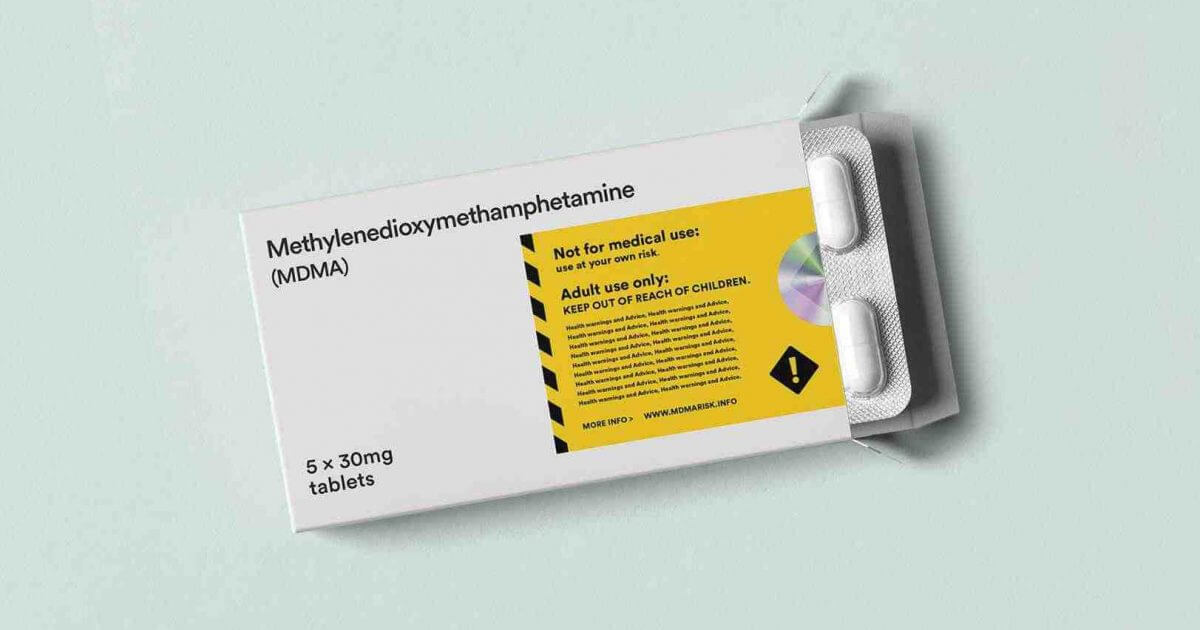MDMA Therapy and Psilocybin Bill Approved by Connecticut

MDMA Therapy & Psilocybin gain popularity across the world. Now, a Connecticut legislative committee on Friday approved a bill that would set the state up to provide certain patients with access to psychedelic-assisted treatment with substances like MDMA and psilocybin.
Before the vote, several members of the joint Public Health Committee remarked on the compelling testimony of top military officials, advocates and scientists who spoke about their experiences and the potential impact of the reform at a hearing earlier this week.
The legislation was approved on a noncontroversial basis as part of the panel’s consent calendar. It now advances to floor consideration. MDMA Therapy, as well as other psychedelics such as MDMA and even LSD, have been in the spotlight lately for their therapeutic benefits.
The measure, HB 5396, would create psychedelic treatment centers in the state, pending approval of the substances by the federal Food and Drug Administration (FDA) under its expanded access program for investigational new drugs.
MDMA Therapy & Psilocybin Gain Support
Rep. Michelle Cook (D) explained her support for the policy change, citing the “compassionate testimony that we had the other day from so many folks.” “I think that sitting back and not doing something, as we heard the other day, is costing lives day after day after day,” the lawmaker said. “Doing nothing I think would be criminal in this regard.” Rep. Kathy Kennedy (R) echoed her colleague’s point, saying that “the testimony that we heard was compelling, it was compassionate, it was emotional and we owe something to our veterans who have served our country and many others that would benefit from this treatment.” Many veterans report significant benefits through MDMA therapy, as well as with Psilocybin. RELATED: Organization Aims To Reschedule Psilocybin Mushrooms In UN Categorization While the legislation would not legalize psychedelics, it would set up a regulatory infrastructure to enable Connecticut to play a leading role in providing access to this alternative treatment option as federal agencies continue to fund and facilitate clinical trials. Psychedelic therapy would be specifically provided and funded for military veterans, retired first responders, health care workers and any person from a “historically underserved community, and who has a serious or life-threatening mental or behavioral health disorder and without access to effective mental or behavioral health medication.”Delta 8 Edibles Bulk Injoy Extracts. Delta 8 Gummies Bulk, HHC For Sale, AiroPro Batteries & more!
Psilocybin Mushrooms Decriminalization
Meanwhile, Gov. Ned Lamont (D) signed a separate bill last year that includes language requiring the state to carry out a study into the therapeutic potential of psilocybin mushrooms. A workgroup has since been meeting to investigate the issue. The new measure would require the state Department of Mental Health and Addiction Services to launch a “psychedelic-assisted therapy pilot program to provide qualified patients with the funding” to receive MDMA- or psilocybin-assisted therapy as part of FDA’s expanded access program, the text of the bill states. The pilot program would cease “when MDMA and psilocybin have been approved to have a medical use by the Drug Enforcement Administration (DEA), or any successor agency.” At that point, state statutes on the substances would be aligned with the federal government’s. One member of the panel, Rep. Liz Linehan (D), suggested on Friday that lawmakers further consider “adding in other treatments” such as ketamine. Meanwhile, Chairman Jonathan Steinberg (D) expressed frustration with the slow pace of federal reform. “The pilot program ends when the federal DEA approves MDMA and psilocybin for medical use,” he said, adding that “we should say ‘when and if,’ but we’re presuming ‘when.’” “We are treading on some new ground here. We’ll be among the first number of states to try to help people” with psychedelic therapies, he said. “We heard a tremendous amount of moving testimony, particularly from veterans that this can be a game-changer for them, having tried any number of other therapies for PTSD and other conditions—and not just veterans.” “Sometimes we have to struggle with the feds. Sometimes we just wish they’d get out of our way, but it doesn’t happen very often,” Steinberg said.MDMA Therapy : Rave to Revolution
In the interim, the bill would further establish a Qualified Patients for Approved Treatment Sites Fund (PAT Fund) to provide “grants to qualified applicants to provide MDMA therapy or psilocybin assisted therapy to qualified patients under the pilot program.” “Approved treatment sites shall collect and submit data to the Department of Mental Health and Addiction Services, including, but not limited to, its protocols for the provision of MDMA therapy and psilocybin-assisted treatment, training on the facilitation of such treatment, implementation of facility standards, strategies for patient protection and mitigation of drug diversion.” The bill would further create a Connecticut Psychedelic Treatment Advisory Board under the department. Legislative leaders and the governor would be empowered to appoint members of the board. The board would be tasked with making recommendations on the “design and development of the regulations and infrastructure necessary to safely allow for therapeutic access to psychedelic-assisted therapy upon the legalization of MDMA, psilocybin and any other psychedelic compounds.”Key Focus Areas
There would be seven key areas that the board would be responsible for advising the department on: Reviewing and considering the data from the psychedelic-assisted therapy pilot program…to inform the development of such regulations Advising the department on the necessary education, training, licensing and credentialing of therapists and facilitators, patient safety, harm reduction, the establishment of equity measures in both clinical and therapeutic settings, cost and insurance reimbursement considerations and standards of treatment facilities Advising the department on the use of group therapy and other therapy options to reduce cost and maximize public health benefits from psychedelic treatments Monitoring updated federal regulations and guidelines for referral and consideration by the state agencies of cognizance for implementation of such regulations and guidelines. Developing a long-term strategic plan to improve mental health care through the use of psychedelic treatment. Recommending equity measures for clinical subject recruitment and facilitator training recruitment Assisting with the development of public awareness and education campaigns. Friday’s committee vote revealed a significant level of bipartisanship around the reform proposal, with multiple Republican and Democratic legislators emphasizing the significant “potential” that these psychedelics may present for vulnerable communities. The legislature should “continue this forward with the recognition that the FDA will continue doing their work,” Rep. Josh Elliott (D) said, but that “doesn’t mean we shouldn’t be doing ours.” Also in Connecticut, regulators recently began accepting certain marijuana business license applications as part of the recreational cannabis law that Lamont signed last year. Meanwhile, the state’s Social Equity Council approved a list of geographic areas disproportionately impacted by the drug war, which will be used to determine eligibility for social equity business licenses. Under the state’s new cannabis program, half of all licenses must go to equity applicants, who may also qualify for lower licensing fees, technical assistance, workforce training and funding to cover startup costs. Over the summer, Lamont also announced the launch of a new website to provide residents with up-to-date information on the state’s new marijuana legalization law. As it stands, adults 21 and older are already able to possess up to 1.5 ounces of cannabis for personal use.HHC for Sale in Bulk at GoodCBD! Hexahydrocannabinol for Sale bulk in delicious vegan gummies!







